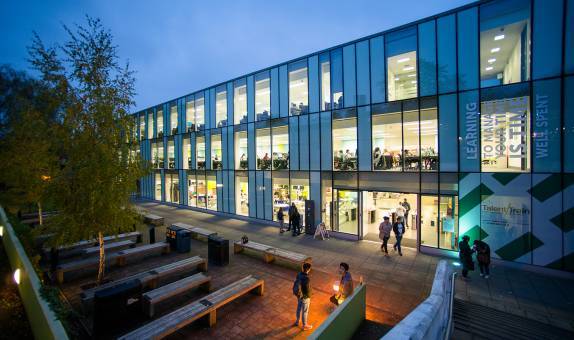GR3: Student Conduct and Behaviour Procedure 2024/25
The University is a community that aims to provide a supportive and positive environment for all those who are a part of it. As a member of our community, we expect you to ensure that the rights of others are respected and are treated with dignity, respect and courtesy at all times. You are expected to conduct yourself in accordance with this commitment and show a concern for the reputation of the University and the student body and others visiting the University.
If we think that you have failed to meet our acceptable standards of behaviour and conduct, we will investigate this and seek to put in place interventions that safeguard our community. While our approach will seek to be supportive, with the overall aim of helping our students to understand why certain conduct and behaviour could be seen as problematic, the University does reserve the right to suspend or expel any student where it is determined that there is good cause.
Appendix 1 of our General Student Regulations (GR1) sets out our Student Code of Conduct and will help you to understand what conduct is expected of you as a member of our University community.
More information on the Student Conduct and Behaviour Procedure can be found on this page and within the full document which is published below.
Please contact your Personal Tutor, the Kingston Students' Union or the Information Centre, if you find any aspect of these regulations difficult to read or understand.
The full process is also outlined in the PDF below.
I would like to make a complaint about a student's conduct or behaviour
If you have a concern about a student's conduct or behaviour you should report this to the University within 15 working days of the incident, or of the last in a series of incidents (please note we will only accept reports outside this timeframe in exceptional circumstances).
Please be aware that Kingston University has a range of support routes available to you if you have experienced or witnessed any behaviour that makes you feel uncomfortable.
There has been an allegation about my conduct or behaviour
The University will contact you via email to let you know that there has been an allegation about your conduct or behaviour that we believe requires further investigation.





